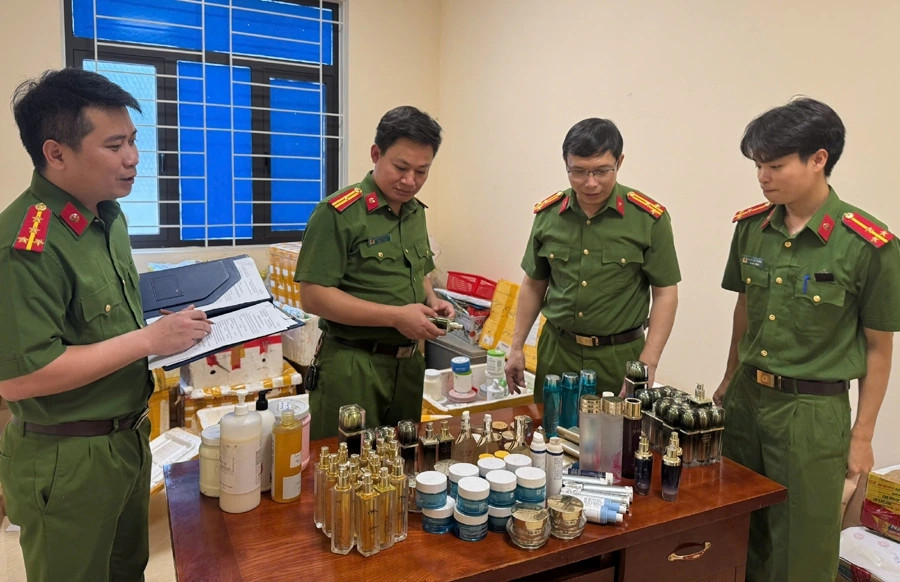According to the Drug Administration of Vietnam, many homemade cosmetic products being sold online are unregistered, of unknown origin, and fail to meet safety and quality standards, posing potential health risks to consumers.

On May 30, the Drug Administration under the Ministry of Health reported a growing trend in the production, distribution, and promotion of handmade or "homemade" cosmetics on social media and e-commerce platforms.
“Many of these products are not registered, lack clear origin, and do not meet the legal standards for safety and quality. They pose significant risks to consumer health,” the agency warned.
Recently, Thanh Hoa provincial police launched a criminal investigation, arresting Nguyen Thi Dung for allegedly producing and trading counterfeit goods.
According to the investigation, Dung began selling cosmetics via Facebook around December 2024. Exploiting the ease of online transactions, she mixed cheap creams and serums costing just VND 50,000 (approximately USD 2) per kilogram, added artificial colors and fragrances, then repackaged them into used cosmetic containers to pass them off as authentic products.
From then until her arrest, she had sold over 1,000 orders nationwide.
In its latest directive, the Drug Administration has urged provincial health departments to step up inspections and enforcement of cosmetic production, trade, and advertising activities - particularly for unregistered, homemade cosmetics sold via social media.
Local authorities are instructed to coordinate with relevant agencies to strictly penalize violations. These include unauthorized production without a valid manufacturing license, marketing unregistered products, failing to meet quality standards, or making exaggerated and false advertising claims about a product's properties and benefits.
The Drug Administration also called on social media platforms (such as Facebook, Zalo, TikTok, and YouTube) and e-commerce marketplaces to actively monitor and remove illegal cosmetic advertisements. This includes content promoting unregistered homemade products, or those not in compliance with current regulations.
Platforms are advised to strengthen content moderation and ensure that any advertised cosmetic product clearly states its origin, has been properly registered, and is produced in a certified facility that meets legal manufacturing standards.
They are also requested to cooperate with government authorities by providing information about offending accounts and channels when required for inspection and enforcement purposes.
Vo Thu